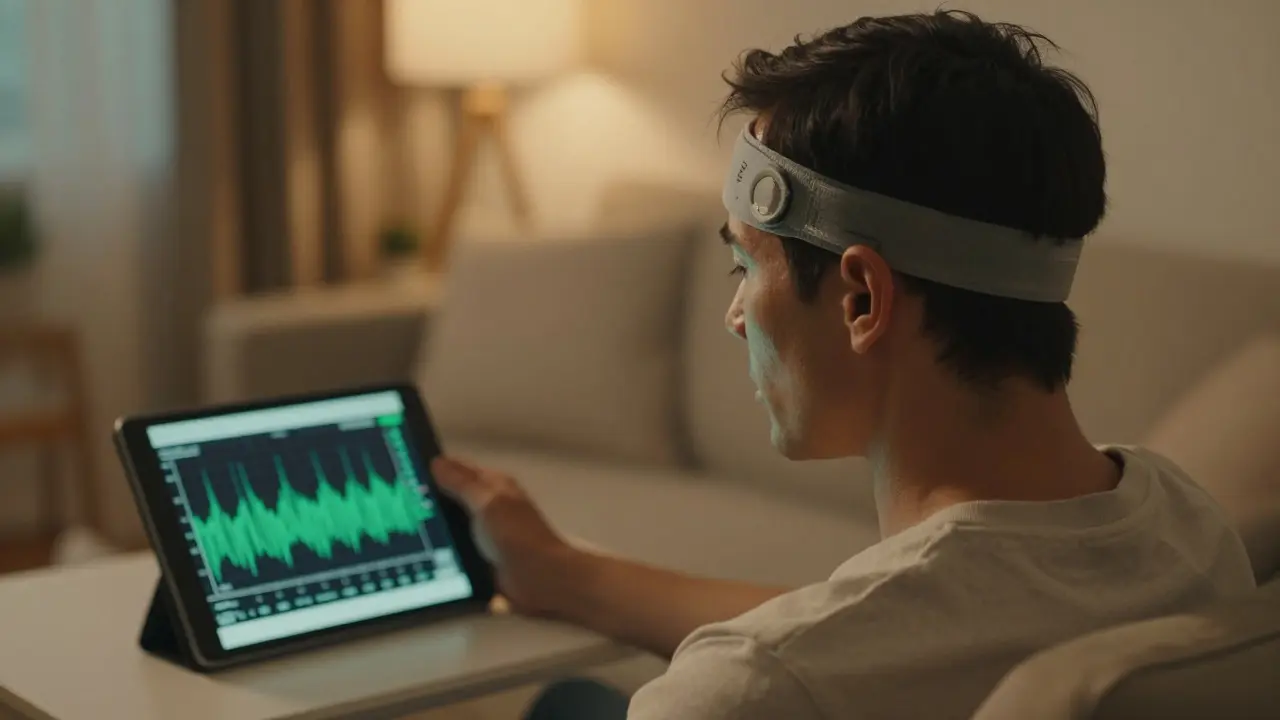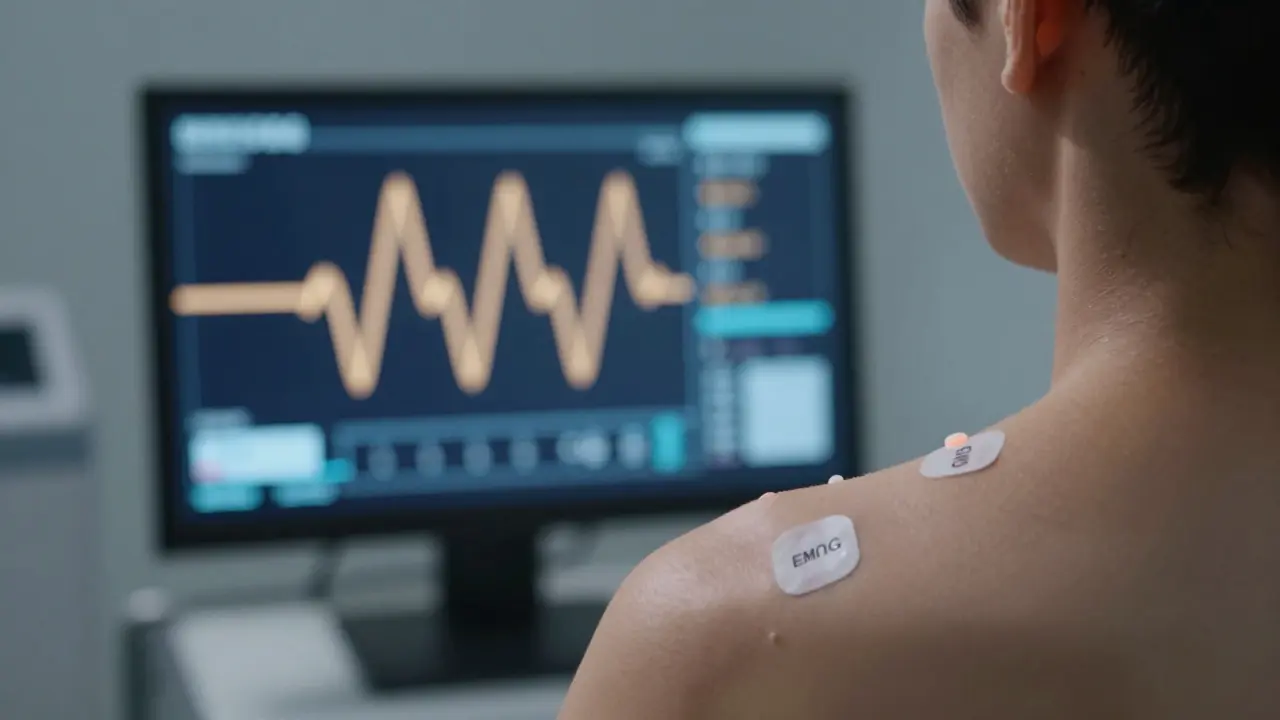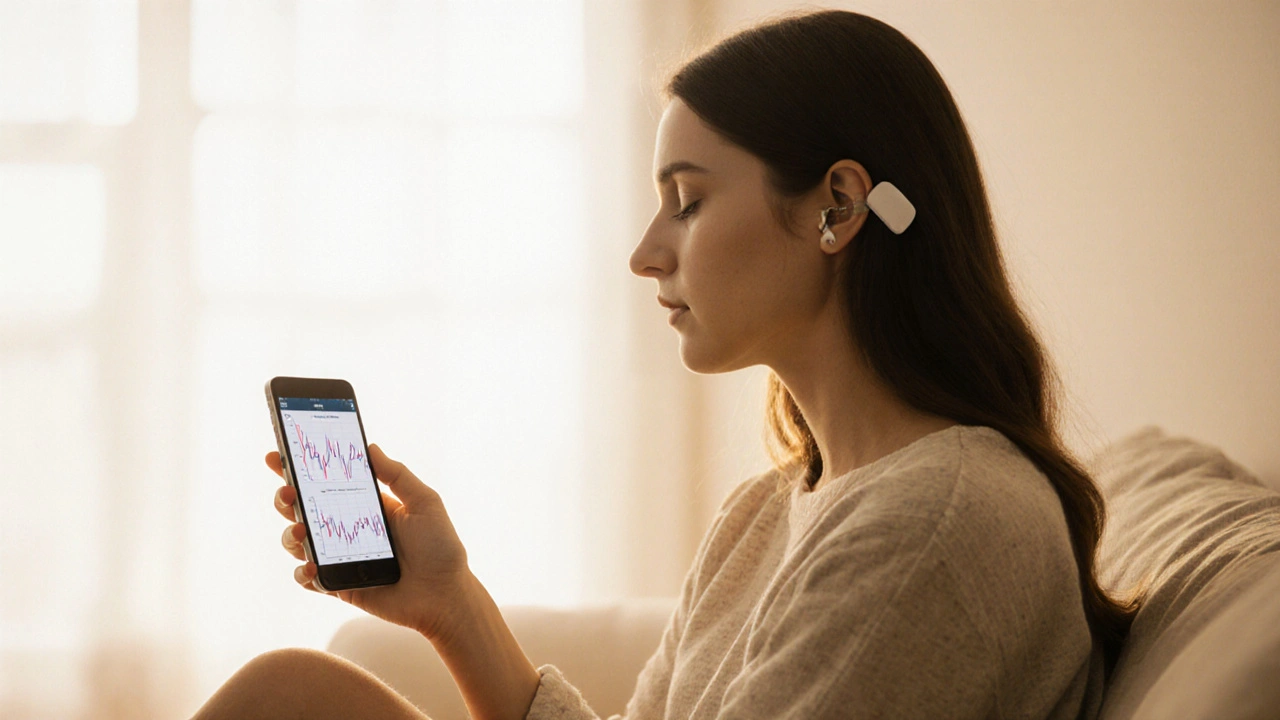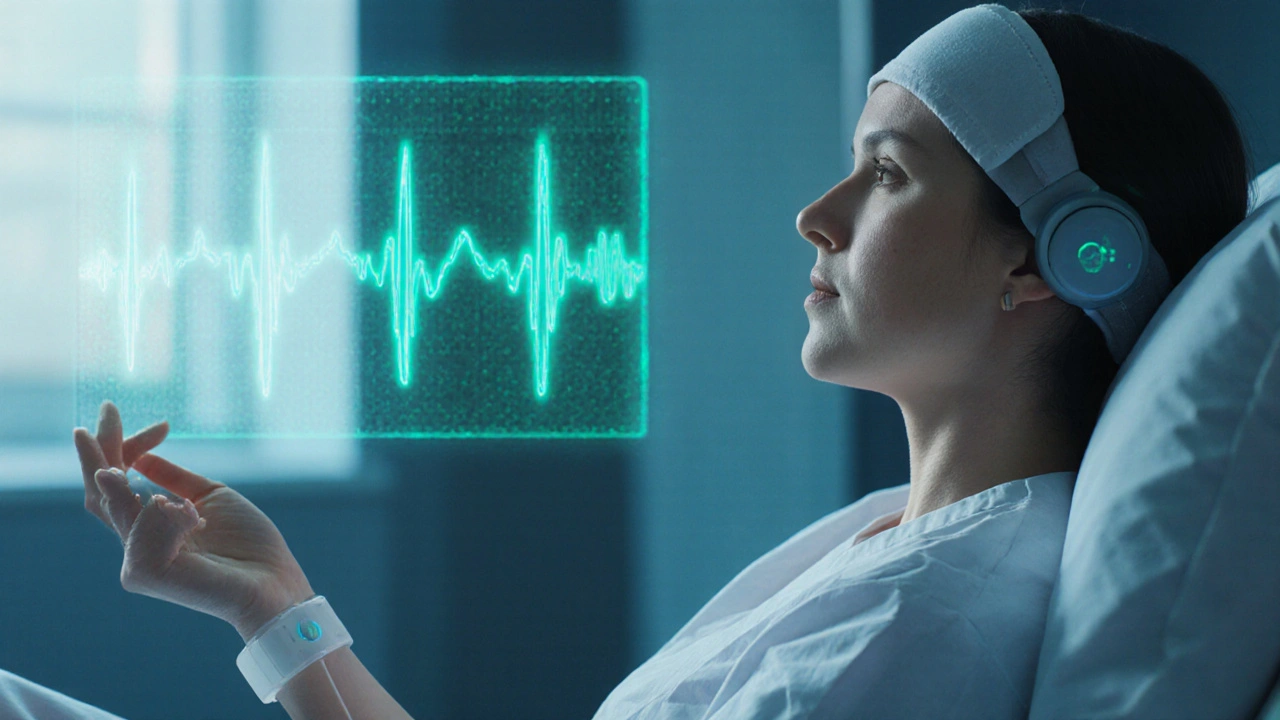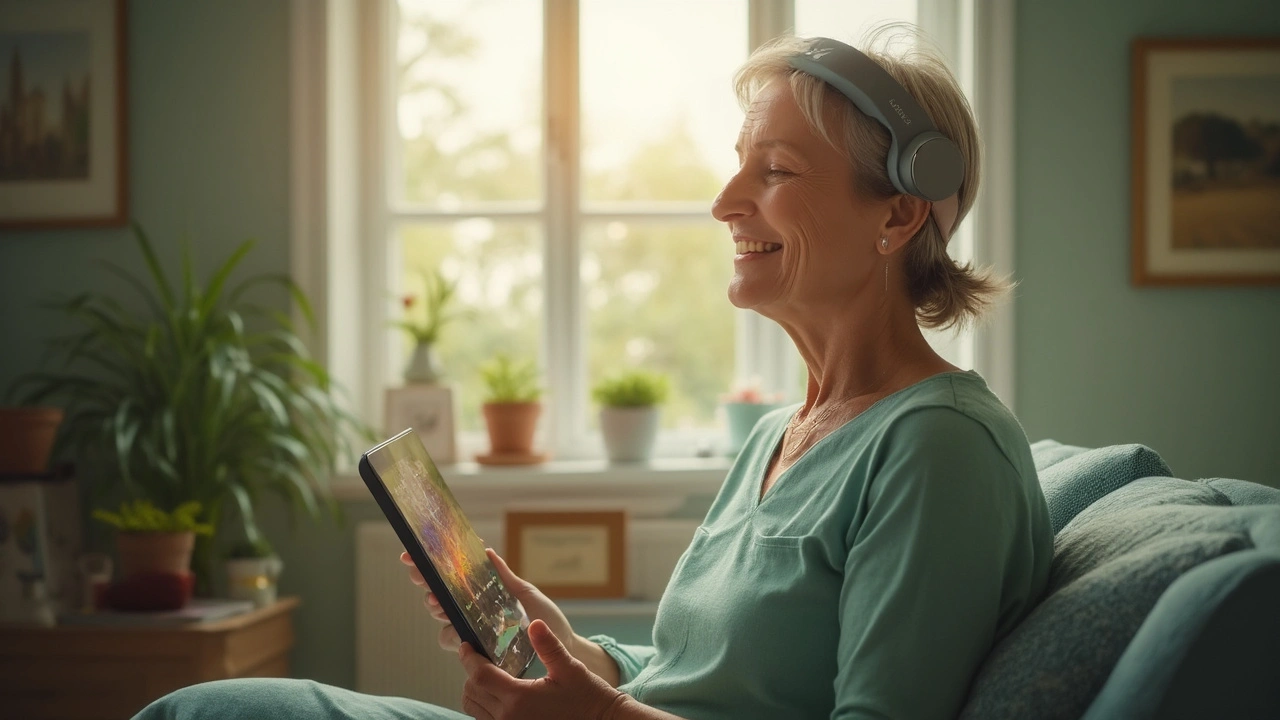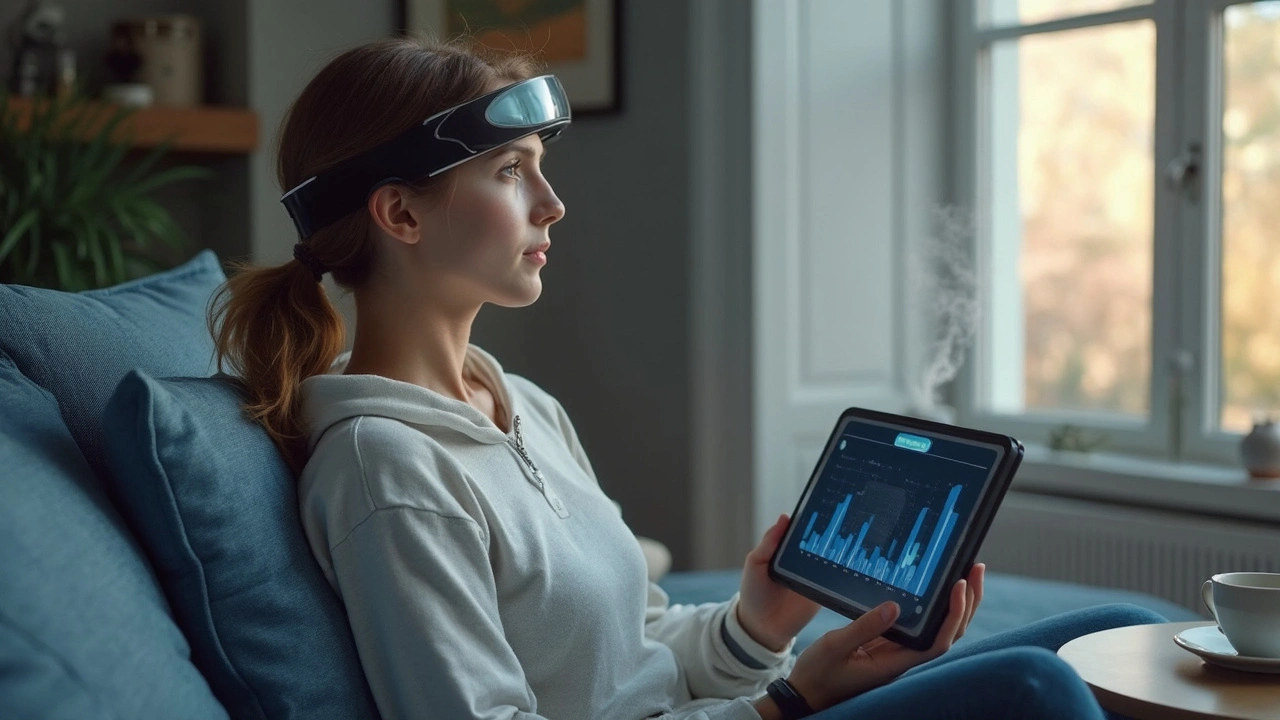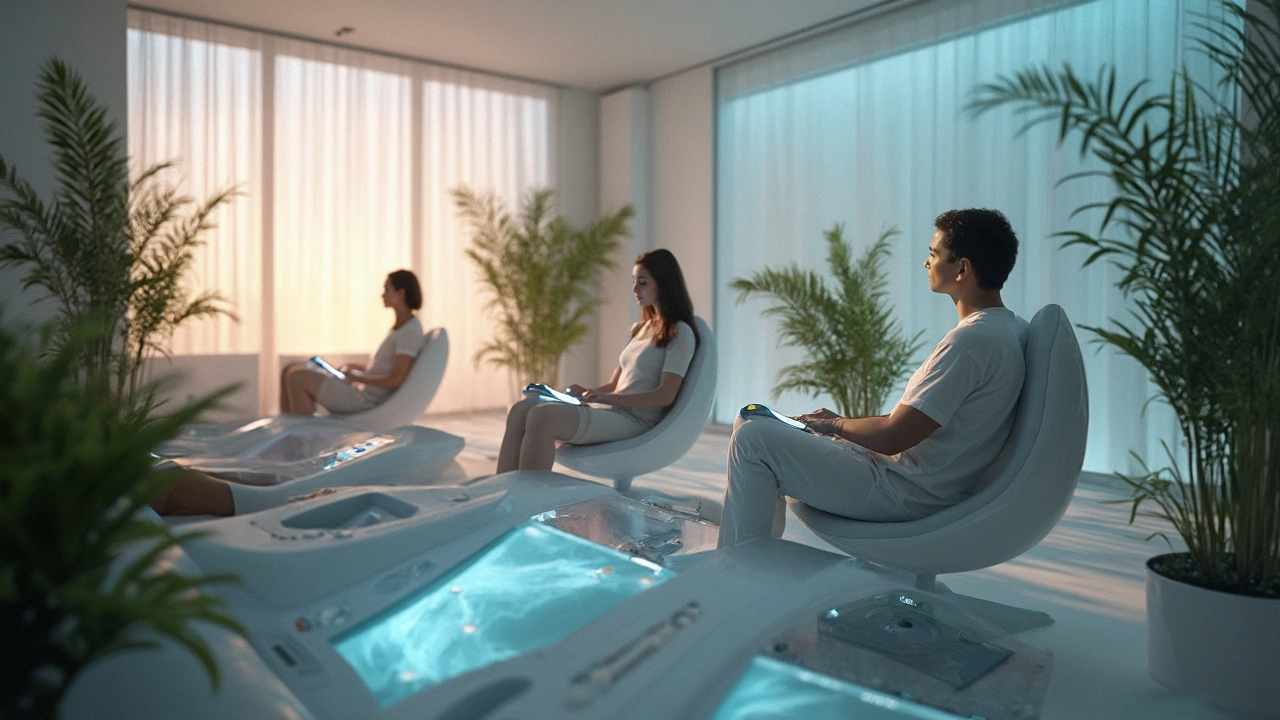Biofeedback: How You Can Control Your Body and Stress
Ever feel like your body has a mind of its own when stress hits? Biofeedback is a simple but powerful way to tune into what your body’s doing and take control. It’s kind of like having a personal coach inside your own skin, showing you real-time signals like your heart rate or breathing patterns. Once you see these signals, you learn how to adjust them to feel calmer and more in charge.
This technique is not magic—it's about becoming aware of subtle body cues you probably ignore. For example, you might notice your hands sweat or your breathing quicken when anxious. Biofeedback training helps you slow down your breathing or relax tense muscles by watching these signals and practicing control methods. The result? You feel less anxious and more balanced without relying on medication or just hoping stress will go away.
How Does Biofeedback Work in Real Life?
Imagine you’re stressed before an important meeting. With biofeedback, sensors might track your heart rate and show you a graph on a screen. You learn how to breathe deeply or relax certain muscles to bring your heart rate down. Over time, your brain gets better at calming your body automatically even without devices.
People who try biofeedback often feel surprisingly empowered. Instead of stress sneaking up on them, they can act early and calm down on demand. Experts support this approach because it trains your mind and body to work together, building habits that last.
Who Can Benefit from Biofeedback?
Anyone dealing with stress or anxiety can give biofeedback a shot. It’s also helpful for folks wanting to boost focus or manage other conditions like headaches or high blood pressure. Plus, new technology makes it easier than ever to use biofeedback at home with wearable devices or smartphone apps.
Getting started usually involves a coach or therapist who guides you through the process and teaches how to interpret signals. After that, you can practice on your own and see real changes in how you handle daily pressures.
Biofeedback isn’t about ignoring your emotions but learning to respond smarter. It’s like giving your stress a big, friendly stop sign and choosing peace instead. If you’re curious about a hands-on, drug-free way to feel calmer and sharper, biofeedback might be the tool you’ve been looking for.
Using Biofeedback to Manage Chronic Pain
- Arlo Sterling
- Feb, 10 2026
Biofeedback helps manage chronic pain by teaching your body to relax muscle tension and calm your nervous system. Studies show it can reduce pain intensity by up to 50% without drugs. Learn how it works, who benefits most, and how to get started.
Learn MoreBiofeedback: A New Frontier in Pain Management
- Desmond Marchbanks
- Jan, 27 2026
Biofeedback helps manage chronic pain by teaching you to control bodily signals like muscle tension and heart rate. Proven effective for migraines, fibromyalgia, and back pain, it offers a drug-free way to reduce suffering and regain control.
Learn MoreUnlocking the Power of Biofeedback: A Complete Guide
- Desmond Marchbanks
- Nov, 16 2025
Biofeedback helps you take control of stress, pain, and anxiety by turning invisible body signals into visible feedback. Learn how it works, what it can treat, and how to start using it today.
Learn MoreHow Biofeedback is Making Waves in Healthcare
- Jason Blackwood
- Nov, 10 2025
Biofeedback is revolutionizing healthcare by helping people control their body's stress responses using real-time data. From reducing anxiety to managing chronic pain, it's a proven, drug-free tool gaining traction in clinics and homes alike.
Learn MoreBiofeedback for Performance & Well-being: Unlocking Mind-Body Mastery
- Lorena Fitzpatrick
- Aug, 11 2025
Discover how biofeedback powers peak performance and boosts well-being, with science-backed facts, relatable stories, and practical tips for mind-body mastery.
Learn MoreBiofeedback Therapy: Unlocking Natural Health and Stress Relief
- Thomas Brighton
- Aug, 4 2025
Explore biofeedback and how it gives you control over your body and mind, reduces stress, and boosts mental wellness—all backed by real-life benefits.
Learn MoreBiofeedback and Cognitive Performance: How Real-Time Body Data Boosts Focus and Brainpower
- Leonard Trimble
- Jul, 7 2025
Explore how biofeedback uses real-time data to sharpen cognitive performance, improve memory, and boost focus. Tips, stats, and practical uses included.
Learn MoreBiofeedback: A New Hope for Anxiety Relief
- Lorena Fitzpatrick
- Jun, 10 2025
Biofeedback offers a fresh way for anxiety sufferers to get real-time help straight from their own bodies. Instead of relying only on pills or talk therapy, this approach teaches people how to tune in to physical signals and take control. The latest tech makes it easier to track heart rate, breathing, and even sweaty palms. People report feeling calmer and more in charge of their stress after just a few sessions. If you want a hands-on way to manage anxiety, biofeedback could be the breakthrough you need.
Learn MoreBiofeedback for ADHD: How It Works and Why It Helps
- Marcus Fairchild
- Apr, 22 2025
Curious about new ways to manage ADHD? This article breaks down how biofeedback gives real-time feedback to help control attention, impulsivity, and stress. Learn what the process actually involves and what kind of results people see. Find out who's likely to benefit most and get some practical tips for trying biofeedback for yourself. Perfect for anyone exploring natural tools beyond medication.
Learn MoreBiofeedback: Exploring the Powers of Cutting-Edge Therapy
- Lorena Fitzpatrick
- Apr, 15 2025
Discover the innovative world of biofeedback, where technology meets the body to help you gain more control over physiological functions. This article explores how biofeedback offers tools to manage stress, enhance mental health, and improve overall well-being. Understand the science behind it and learn practical tips for incorporating this therapy into daily life. Whether you're a wellness enthusiast or someone seeking new ways to handle anxiety, biofeedback might just be the key.
Learn More